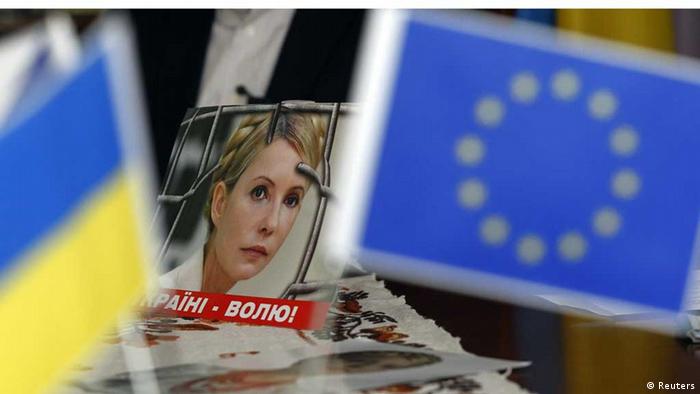The FT explains why there is an issue here:
When Ukraine won the right to co-host this summer’s European football extravaganza, Euro 2012, it was meant to be a joyous affirmation of the country’s post-Soviet, western-facing identity. But the event has become the focus of an international political protest over the imprisonment of Yulia Tymoshenko.The treatment of Tymoshenko has inevitably collided with Ukraine's role in co-hosting the upcoming tournament, which will be widely watched by football fans around the world. A number of observers, including government officials, have called for sanctions against Ukraine involving the tournament. But the FT says that "calls for an international boycott of the competition, or to strip Ukraine of its right to host the tournament, are misguided for several reasons."
The international community is right to take a stand against Ms Tymoshenko’s treatment. The former prime minister, a bitter foe of Ukraine’s increasingly authoritarian president, Viktor Yanukovich, says she has been beaten by guards on a visit to a medical centre.
These reasons include the ineffectiveness of such boycotts, the opportunity to use the spotlight shown on Ukraine for positive effect and the precedent set by such an action -- what about Russia and Qatar? -- asks the FT, alluding to the 2018 and 2022 World Cups.
But then the FT quickly changes course:
Europe’s politicians would send Mr Yanukovich a powerful signal by staying away from games in Ukraine. His actions are not compatible with European values and push him further from achieving his stated desire of closer links to the EU. A political boycott would also deprive Mr Yanukovich of the chance to use the tournament as proof of his international standing in crucial parliamentary elections this year. Euro 2012 is about sport, not politics.A "political boycott" is probably not the best vehicle for showing that "Euro 2012 is about sport, not politics."
Of course, the FT is not alone in trying to swim without getting wet. Bayern Munich Uli Hoeness struggled with the issue in an interview in Der Spiegel and UEFA's president Michel Platini has tried to distance himself from the controversy. The head of the Spanish football federation however recommended that the tournament be moved to Spain, demonstrating a slightly different political take on the situation.
Sports and politics are inevitably intertwined, there is no use pretending otherwise. While Euro 2012 is indeed about sport, the politics are never far away.


Not a comment as such, but I fear there is a typo in second sentence that changes the meaning 180 degrees.
ReplyDeleteHa! Fine catch, thanks!
ReplyDeleteFunny that we've heard nothing at all about this in the news in Spain! You'd think in a football-crazy nation like this one even a rumour of transferring the Euro here would spread like wildfire! ;o)
ReplyDeleteI think politics are sadly unavoidable in any international sports event...